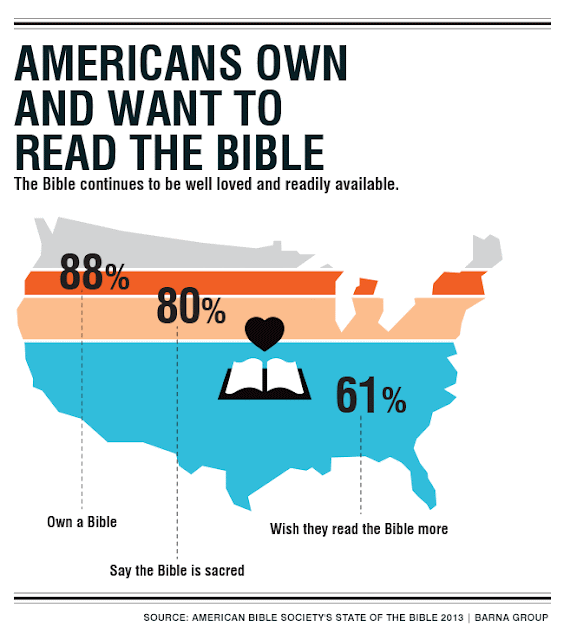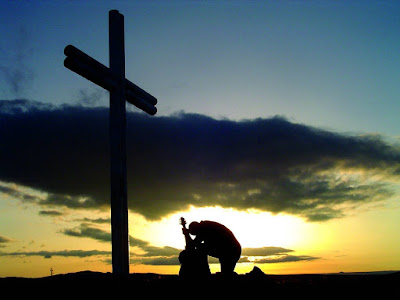The Bible and America
One of March’s media stories has been the success of the History Channel miniseries, The Bible. The first episode, which premiered on March 3, had 13.1 million viewers, according to Nielsen, making it the highest non-sport entertainment broadcast of 2013. The interest in a cable series makes it clear the American public is certainly interested in the Bible. But what do Americans actually think about the Bible? Do they believe it to be sacred, authoritative or merely nonsense? Do they try to follow its exhortations, or do they regard the Bible as antiquated literature? Does the Bible still matter—besides television ratings—to Americans? A recent survey from the Barna Group, commissioned by the American Bible Society, provides some insight into these questions. From the results, it’s easy to see why the Bible remains a cultural force in the United States. Yet, its future role looks very different than its past. Here are some statistics:
David Kinnaman, president of Barna Group, pointed to several conclusions from the study:
Most Americans esteem the Bible and have access to it. However, even if there’s a baseline of respect, people aren’t sure how to apply the lessons of Scripture to public life or society, particularly in an increasingly pluralistic nation.
The middle ground related to the Bible seems to be disappearing. The decrease of Bible-neutral and Bible-friendly people and the increase of Bible-antagonists suggest that more people are picking a side. It echoes the rise of religiously unaffiliated Americans—these changes are perhaps less about the decline in belief and more about there being less cultural baggage to identifying as skeptical or disbelieving.
There’s a healthy cultural respect for and fascination with Scripture, which helps to explain why millions have tuned into The Bible series. People seem to be open to experiencing ancient scriptures in new ways.
Mosaics—a generation often called Millennials—are very intrigued by the role of the Bible in providing guidance and wisdom. It is a surprising expression of openness to Christianity amidst a generational cohort that is increasingly post-religious.
David Kinnaman, president of Barna Group, pointed to several conclusions from the study:
Most Americans esteem the Bible and have access to it. However, even if there’s a baseline of respect, people aren’t sure how to apply the lessons of Scripture to public life or society, particularly in an increasingly pluralistic nation.
The middle ground related to the Bible seems to be disappearing. The decrease of Bible-neutral and Bible-friendly people and the increase of Bible-antagonists suggest that more people are picking a side. It echoes the rise of religiously unaffiliated Americans—these changes are perhaps less about the decline in belief and more about there being less cultural baggage to identifying as skeptical or disbelieving.
There’s a healthy cultural respect for and fascination with Scripture, which helps to explain why millions have tuned into The Bible series. People seem to be open to experiencing ancient scriptures in new ways.
Mosaics—a generation often called Millennials—are very intrigued by the role of the Bible in providing guidance and wisdom. It is a surprising expression of openness to Christianity amidst a generational cohort that is increasingly post-religious.








Comments
Post a Comment